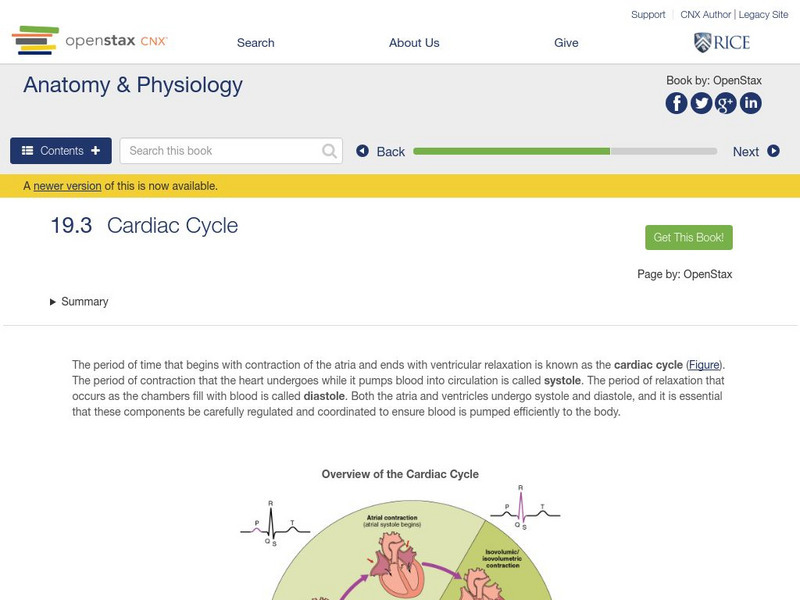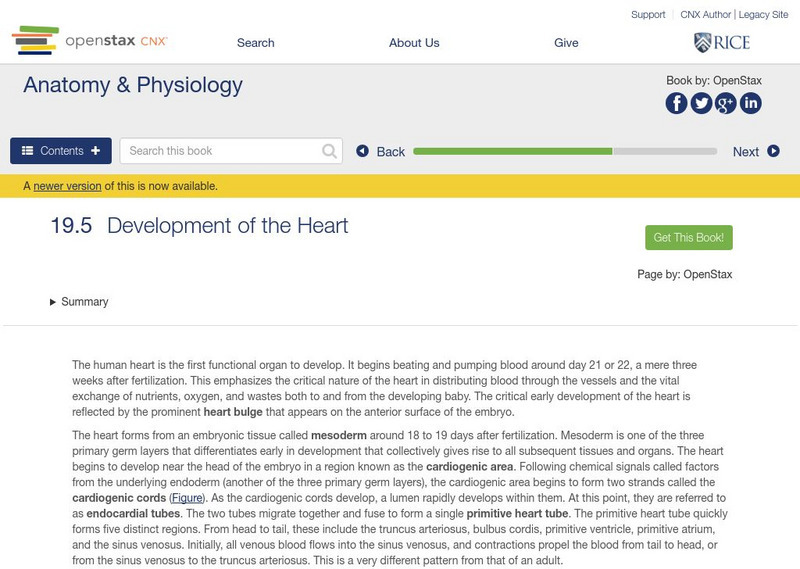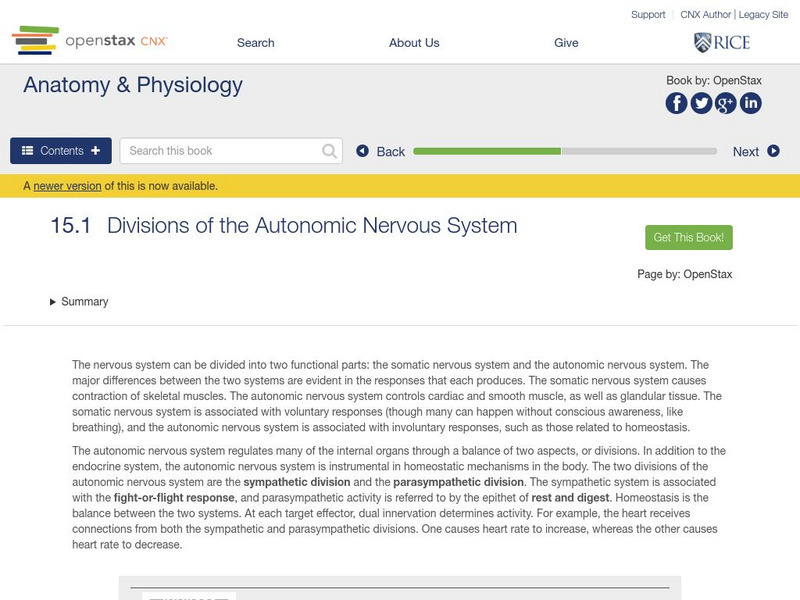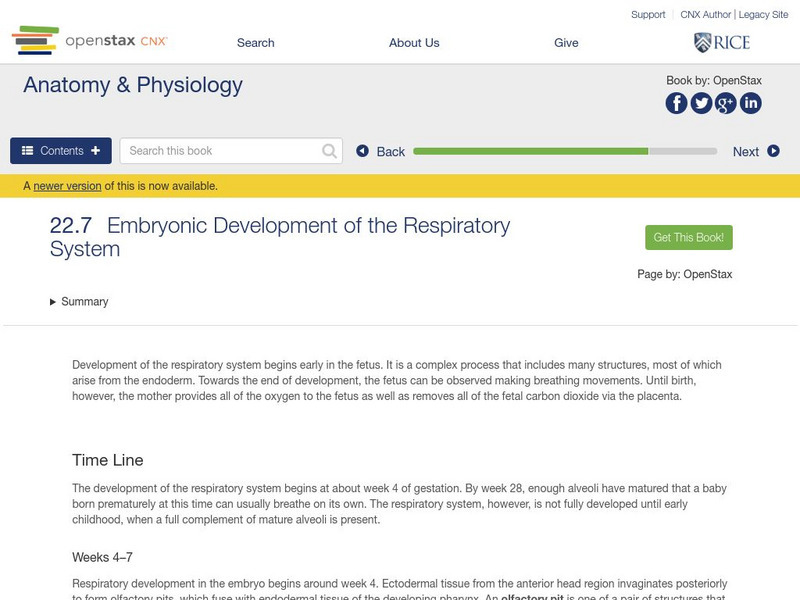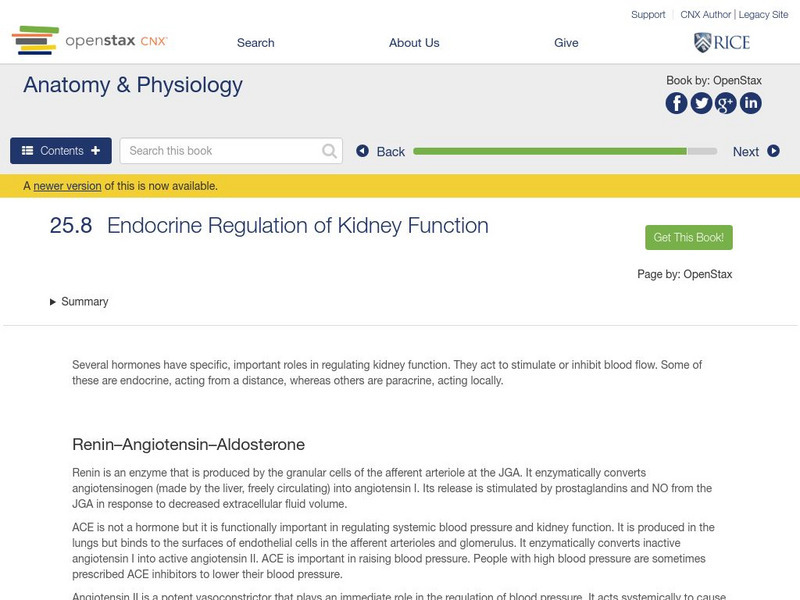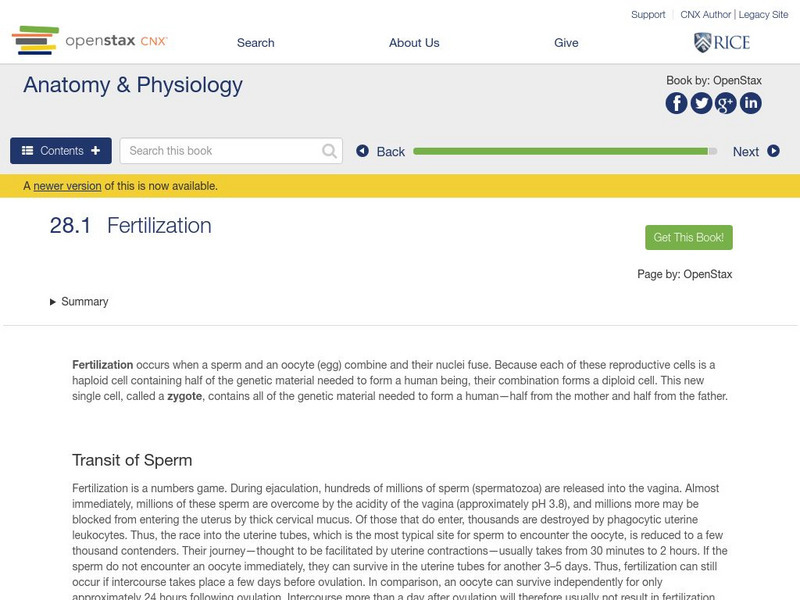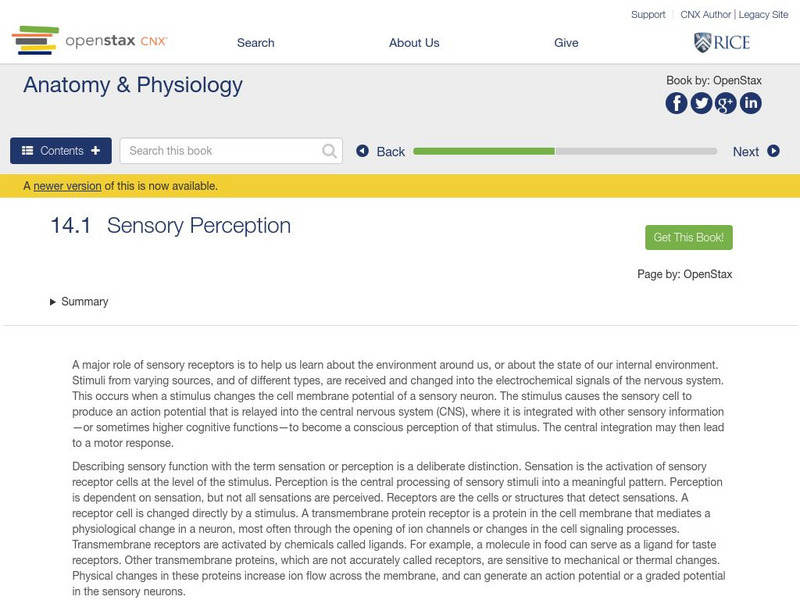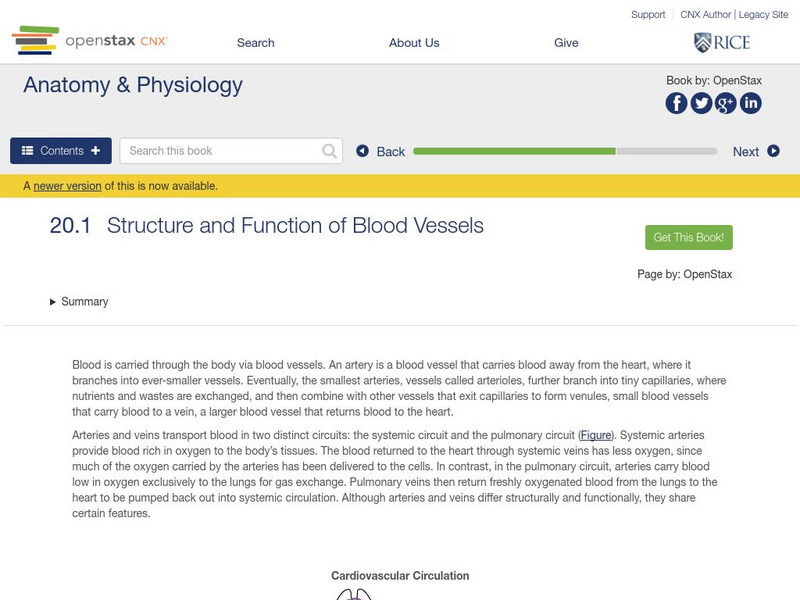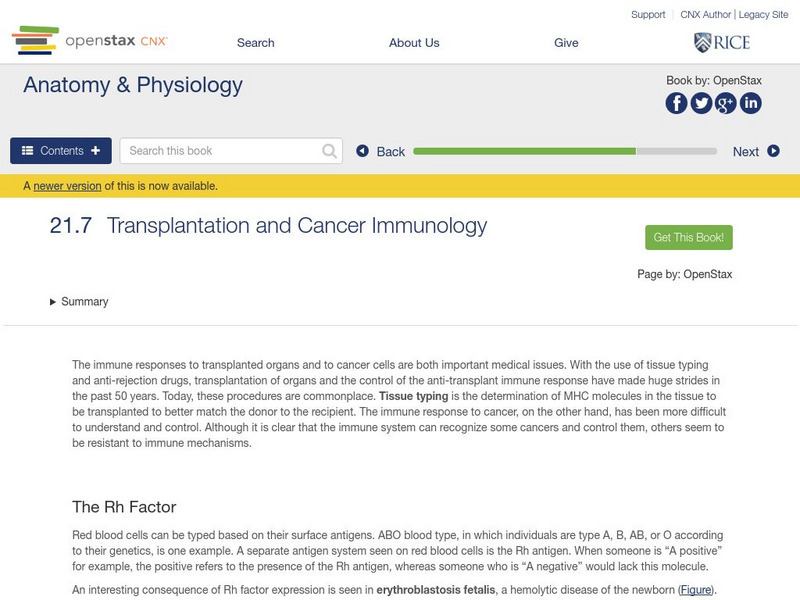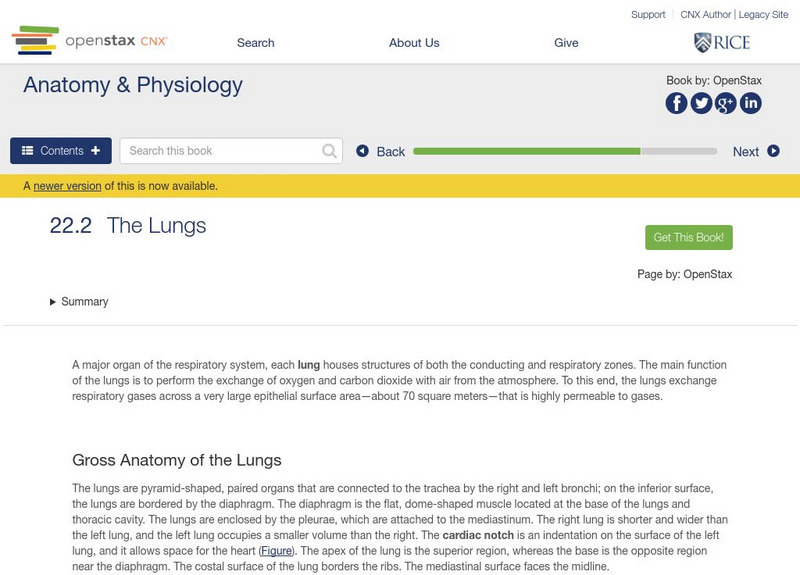OpenStax
Open Stax: Anatomy & Physiology: Cardiac Cycle
Students learn the structure and function of the cardiac muscle and study the components of the conducting system that distributes electrical impulses through the heart during the cardiac cycle.
OpenStax
Open Stax: Anatomy & Physiology: Cardiac Muscle and Electrical Activity
Students learn about cardiac muscles and the electrical activity that helps them function to pump blood throughout the body.
OpenStax
Open Stax: Anatomy & Physiology: Central Processing
Students learn the pathways that sensory systems follow into the central nervous system, and understand the difference between the two major ascending pathways in the spinal cord.
OpenStax
Open Stax: Anatomy & Physiology: Chemical Digestion/absorption: A Closer Look
In this module, find out the locations and primary secretions involved in the chemical digestion of carbohydrates, proteins, lipids, and nucleic acids.
OpenStax
Open Stax: Anatomy & Physiology: Circulation and the Central Nervous System
Students learn about the vessels that supply the central nervous system with blood.
OpenStax
Open Stax: Anatomy & Physiology: Communication Between Neurons
Students explain the differences between the types of graded potentials, and categorize the major neurotransmitters by chemical type and effect.
OpenStax
Open Stax: Anatomy & Physiology: Development of the Heart
Study the embryological development of heart structures including the five regions of the fetal heart with these learning exercises.
OpenStax
Open Stax: Anatomy & Physiology: Disorders of Acid Base Balance
Learn about the three blood variables considered when making a diagnosis of acidosis or alkalosis, and then find out the source of compensation for blood pH problems of a respiratory or renal origin.
OpenStax
Open Stax: Anatomy & Physiology: Divisions of the Autonomic Nervous System
In this module, learn about the components that generate the sympathetic and parasympathetic responses of the autonomic nervous system.
OpenStax
Open Stax: Anatomy & Physiology: Electrolyte Balance
Students will learn about the role of the six most important electrolytes in the body, and then study the disorders associated with abnormally high and low levels of these electrolytes.
OpenStax
Open Stax: Anatomy & Physiology: Embryonic Development: Respiratory System
Students walk through a timeline of the phases of respiratory development in the fetus, and then propose reasons for fetal breathing movements.
OpenStax
Open Stax: Anatomy & Physiology: Embryonic Development
Students learn about the stages of embryonic development that occur before implantation as well as the process of implantation.
OpenStax
Open Stax: Anatomy & Physiology: Endocrine Regulation of Kidney Function
Learn how several hormones have specific, important roles in regulating kidney function. Find out how they act to stimulate or inhibit blood flow.
OpenStax
Open Stax: Anatomy & Physiology: Energy and Heat Balance
Learn how the human body regulates temperature and explain the significance of the metabolic rate.
OpenStax
Open Stax: Anatomy & Physiology: Erythrocytes
Learn about the anatomy and the various steps in the life cycle of an erythrocyte, and find out about the composition and function of hemoglobin.
OpenStax
Open Stax: Anatomy & Physiology: Fertilization
Students learn about the fertilization process of an egg and sperm cell during human reproduction.
OpenStax
Open Stax: Anatomy & Physiology: Fetal Development
Learn about the development of fetal organs and systems during the prenatal period.
OpenStax
Open Stax: Anatomy & Physiology: The Action Potential
Students will learn the components of the membrane that establish the resting membrane potential, and find out the changes that occur to the membrane that result in the action potential.
OpenStax
Open Stax: Anatomy & Physiology: The Embryologic Perspective
Students learn how the different stages of embryonic development relate to the adult structures of the central nervous system, and understand the growth and differentiation of the neural tube.
OpenStax
Open Stax: Anatomy & Physiology: Sensory Perception
Learn the different types of sensory receptors, and describe the structures responsible for the special senses of taste, smell, hearing, balance, and vision.
OpenStax
Open Stax: Anatomy & Physiology: Structure and Function of Blood Vessels
Learn the structure and function of the blood vessels of the human cardiovascular system.
OpenStax
Open Stax: Anatomy & Physiology: The Immune Response Against Pathogens
Students learn about the development of immunological competence, and find out about the human body's immune response.
OpenStax
Open Stax: Anatomy & Physiology: Transplantation and Cancer Immunology
Students discover how blood typing affects transfusions and organ transplants. They will also learn how the immune response is able to control some cancers.
OpenStax
Open Stax: Anatomy & Physiology: The Lungs
Students learn the overall function of the human lungs, and then summarize the blood flow pattern associated with the lungs.


